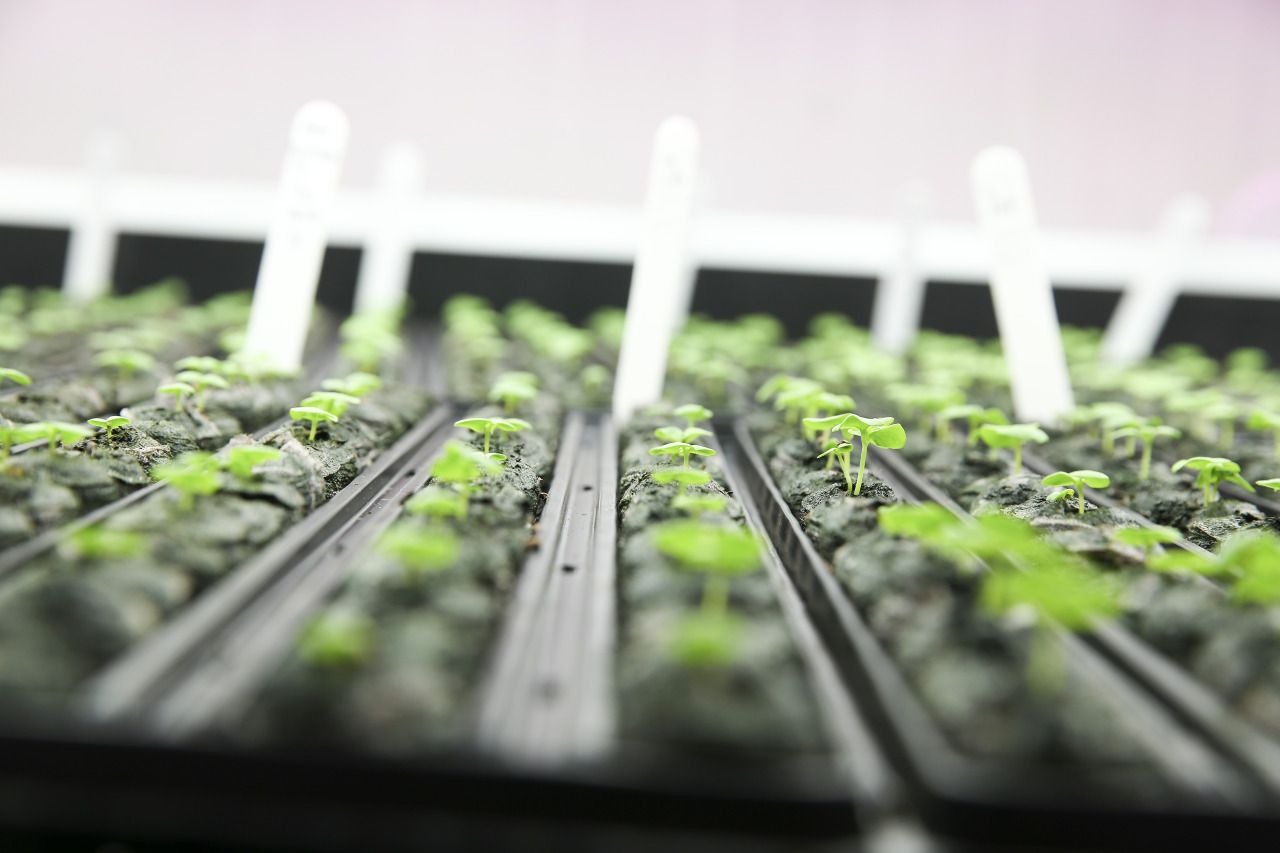Growing food was not the initial motivation for vertical farming company TruLeaf. It was a desire to find solutions to chronic disease through clean, nutritious food, Gregg Curwin, chief executive tells AgFunderNews.
A healthcare entrepreneur, Curwin first thought about creating TruLeaf when he saw an image of a vertical farm from Japan about five years ago. “That for me was a light bulb moment,” he says. “Obviously we are creating clean food anywhere, at any time, but there is also a huge amount of potential in the nutraceutical space and beyond.”
“If you look at North America, there are huge rates of chronic disease which we will be bankrupt as a country treating. But there are increasing amounts of compelling data pointing to the potential for optimum levels of nutrition to help reverse or avoid chronic disease.”
After spending a few years researching the space, exiting healthcare investments and making sure there was a customer base for vertical farm produce, Curwin established the vertical farming company in Nova Scotia, Canada, to help solve this problem.
Using a modified hydroponic technique and unique plant production formula — which match seeds to specific amounts of water, heat and light, and post harvest treatment — TruLeaf believes it can increase the level of nutrients and antioxidants in plants. In this way Curwin hopes to provide consumers with the nutrition they need to avoid disease. “This is not GMO; we are giving the plant what it needs to perform for optimum nutrition,” he says. “The nutritional value of most fruit and vegetables in eastern Canada and the U.S. is abysmal and the produce coming from the west coast inherently loses its nutritional value through distance.”
After raising an initial $1 million in seed capital to build a research and development facility three years ago, TruLeaf entered into a partnership with a large Canadian supermarket. This was key for the company’s development as it educated TruLeaf on how to apply vertical farming to the supply chain of a supermarket chain and helped the company to develop its plant production formulae and optimize the varieties it grows. But it was a helpful collaboration for both parties as TruLeaf educated the supermarket on its technology and growing nutritious food.
“We are as much a nutrition company as a vertical farm company. First and foremost we want consumers to have an incredible culinary experience in taste, texture and color, but everything we do with variety optimization is to ensure maximum nutritional value.”
TruLeaf is now in expansion mode and is building a second indoor farm in Canada, and will sell its produce under the GoodLeaf brand, a fully-owned subsidiary it established to grow and market packaged produce in North America and beyond. GoodLeaf will produce basil, arugula, (rocket) kale, spinach and its own unique east coast salad mix which will be sold into TruLeaf’s supermarket partner, restaurants, hotels and a hospital that the company is doing a pilot with.
The vertical farming company is also in the early stages of discussions about building a farm in the Canadian arctic where “food security is horrendous”, according to Curwin. “That project is exciting; it’s not just about food security but for the benefit of farming everywhere.”
But TruLeaf does not want to get ahead of itself, and is not yet ready to sell its technology to third parties. “We have inquiries on a weekly basis from all over the world and it’s exciting and tempting, but we are very wary of licensing right now. We want to control the technology and control the standards. There are many risks in vertical farming; it’s not like a piece of software. Plus we want to grow GoodLeaf into a recognizable brand not just in North America, but globally. An international brand, grown locally.”
The vertical farming company will build farms in other parts of North America and could establish joint ventures with local indoor growers if it makes sense. It will also pursue other methods of distribution beyond the traditional routes, according to Curwin.
“We are very interested in disruptive distribution,” he says. “Today we’re focused on supermarkets, restaurants and hospitals, but what’s tomorrow? I think food is changing so fast so it’s important for us to contemplate other methods of distribution.”
TruLeaf is now preparing to launch a fundraising campaign on AgFunder to raise $2.65 million. It has already raised $1.28 million and is closing out the round on the platform.
The proceeds of the Series A round will go towards commercialization, recruitment and the hiring of key personnel in research and operations; business development and continued development of IP and technology.
Have news, tips or want to write a guest post? Email [email protected]
–Visit agfunder.com for agtech investment opportunities —





